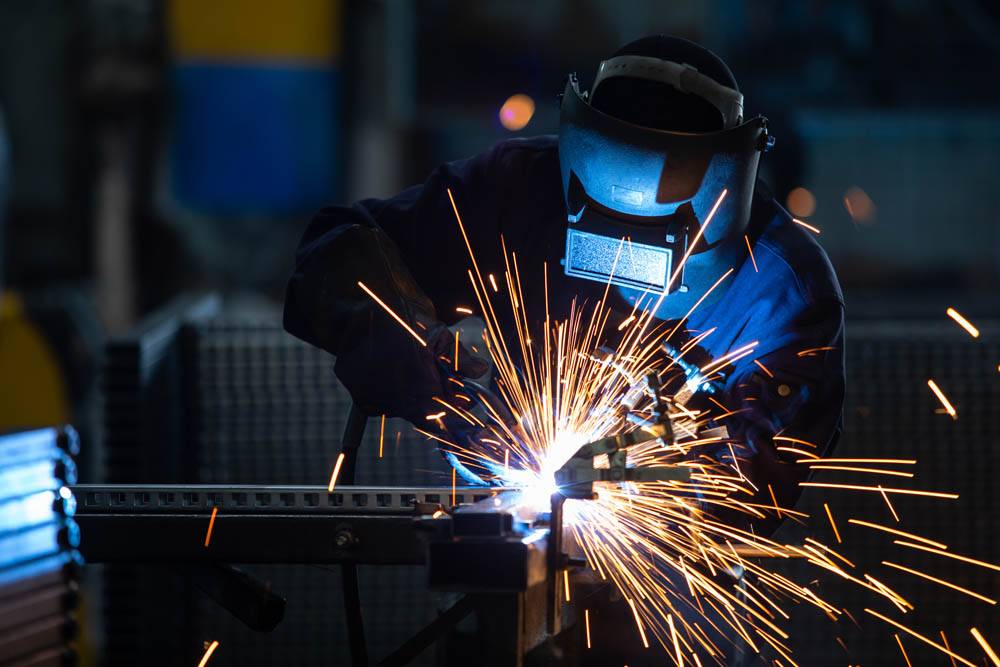
Welders are expert welders who design, maintain, and develop diverse welding systems in aerospace, construction, and civil engineering. In addition, they might research more efficient welding methods or design more efficient welding equipment.
Responsibilities
Throughout your apprenticeship, you may help:
- follow engineering drawings and instructions for each job
- check dimensions and thicknesses of materials to be welded
- prepare and set out sections to be joined or repaired
- calibrate tools and machinery
- operate welding equipment
- inspect and test welds and joins, using precision measuring instruments
- dismantle and cut up metal in structures that are being demolished
- clean tools, equipment and work areas.
Salary
- Apprentice welders can earn £20,000 – £25,000
- Trained welder engineers with some experience can earn £25,000 – £30,000
- Senior or chartered welder engineers can earn in excess of £35,000.
Working hours
You will typically work 44 to 46 hours per week, including working evening and weekends on a shift basis.
Working environment
You could work in a workshop, on a construction site or on a demolition site.
Your working environment may be hot, cramped and at height.
You may need to wear safety clothing and use safety equipment.
Qualifications
Qualifications you can achieve as an apprentice welder include:
- Level 2 General Welder – Entry requirements for this level include some GCSEs, usually including English and maths, or equivalent, for an intermediate apprenticeship. This qualification takes 18 months to complete.
- Level 3 Pipe Welder – Entry requirements for this level include 5 GCSEs at grades 9 to 4 (A* to C), or equivalent, including English and maths, for an advanced apprenticeship. This qualification takes 48 months to complete.
- Level 3 Plate Welder – Entry requirements for this level include 5 GCSEs at grades 9 to 4 (A* to C), or equivalent, including English and maths, for an advanced apprenticeship. This qualification takes 36 months to complete.
Skills
On a welding apprenticeship, you’ll learn:
- to be thorough and pay attention to detail
- knowledge of engineering science and technology
- the ability to work on your own
- the ability to use, repair and maintain machines and tools
- design skills and knowledge
- knowledge of maths
- the ability to work well with your hands
- the ability to analyse quality or performance
- to be able to carry out basic tasks on a computer or hand-held device.
Career path and progression
You may be a supervisor or the manager of a metal fabrication workshop.
Work in welding inspection, non-destructive testing, and quality control may also be an option.
Underwater welding with commercial diver training, such as in oil, gas, and marine engineering, might become your speciality.
You might also work as a teacher at a community college.
